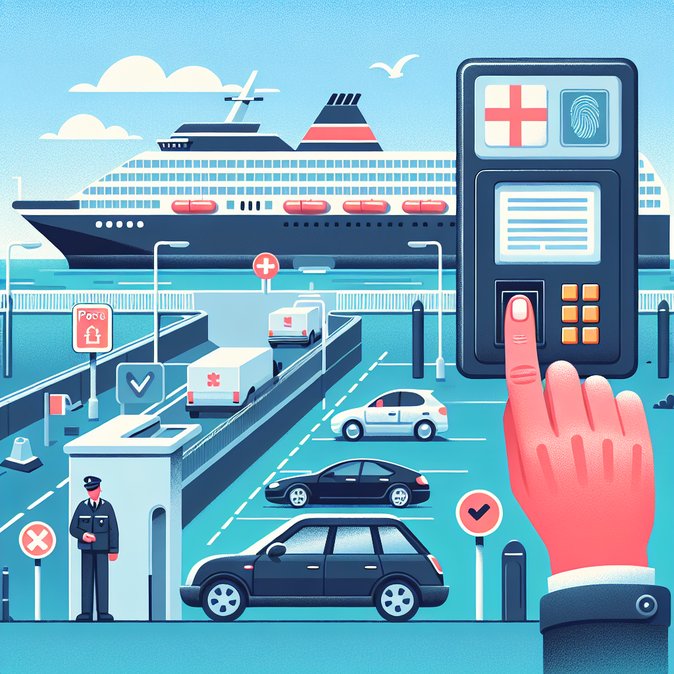
Britain’s busiest ferry port has halted the next stage of the European Union’s new Entry/Exit System (EES) only hours before it was due to go live on 1 November 2025. The Port of Dover confirmed that car passengers will **not** yet undergo the fingerprint-and-facial-scan process that became mandatory for coaches and lorries on 12 October. Port chief executive Doug Bannister said facilities were “100 % ready”, but French border police – who carry out Schengen controls on the English side of the Channel – have asked for more time, citing staffing schedules and IT sign-off requirements.
The late decision means families heading to Calais for half-term skiing trips or early Christmas markets will still have their passports stamped manually. Dover processed 3 million tourist cars last year, and industry modelling suggested that the EES registration could take two to six minutes per vehicle on a first visit, potentially multiplying peak-hour queues. While port officials insist the winter lull will allow a “phased activation”, Kent Resilience Forum planners have kept contingency traffic-holding sites at Lydden Hill and on the M20 on standby.
![Port of Dover postpones roll-out of EU biometric border checks for tourist cars]()
For employers, the delay removes an immediate threat to commercial schedules. Freight and coach operators reported minimal disruption after October’s freight launch, but logistics groups warned that car traffic is less predictable, especially at weekends. Travel management companies are advising corporate drivers to build in extra buffer time once the French authorities give the green light, expected “later in November”. Eurotunnel and Eurostar, which also host French border staff in the UK, say their own EES kiosks remain on track for incremental switch-on in December.
The EES replaces manual passport stamping for all non-EU visitors and will eventually feed into the EU’s ETIAS pre-travel authorisation scheme. British business travellers will have to complete the one-off biometric enrolment on their first post-launch trip, after which subsequent crossings should be faster. Companies with regular cross-Channel traffic should brief staff on the procedural change, ensure passports have at least three months’ validity beyond the intended exit date, and monitor carrier alerts for the revised go-live date.
The late decision means families heading to Calais for half-term skiing trips or early Christmas markets will still have their passports stamped manually. Dover processed 3 million tourist cars last year, and industry modelling suggested that the EES registration could take two to six minutes per vehicle on a first visit, potentially multiplying peak-hour queues. While port officials insist the winter lull will allow a “phased activation”, Kent Resilience Forum planners have kept contingency traffic-holding sites at Lydden Hill and on the M20 on standby.

For employers, the delay removes an immediate threat to commercial schedules. Freight and coach operators reported minimal disruption after October’s freight launch, but logistics groups warned that car traffic is less predictable, especially at weekends. Travel management companies are advising corporate drivers to build in extra buffer time once the French authorities give the green light, expected “later in November”. Eurotunnel and Eurostar, which also host French border staff in the UK, say their own EES kiosks remain on track for incremental switch-on in December.
The EES replaces manual passport stamping for all non-EU visitors and will eventually feed into the EU’s ETIAS pre-travel authorisation scheme. British business travellers will have to complete the one-off biometric enrolment on their first post-launch trip, after which subsequent crossings should be faster. Companies with regular cross-Channel traffic should brief staff on the procedural change, ensure passports have at least three months’ validity beyond the intended exit date, and monitor carrier alerts for the revised go-live date.









